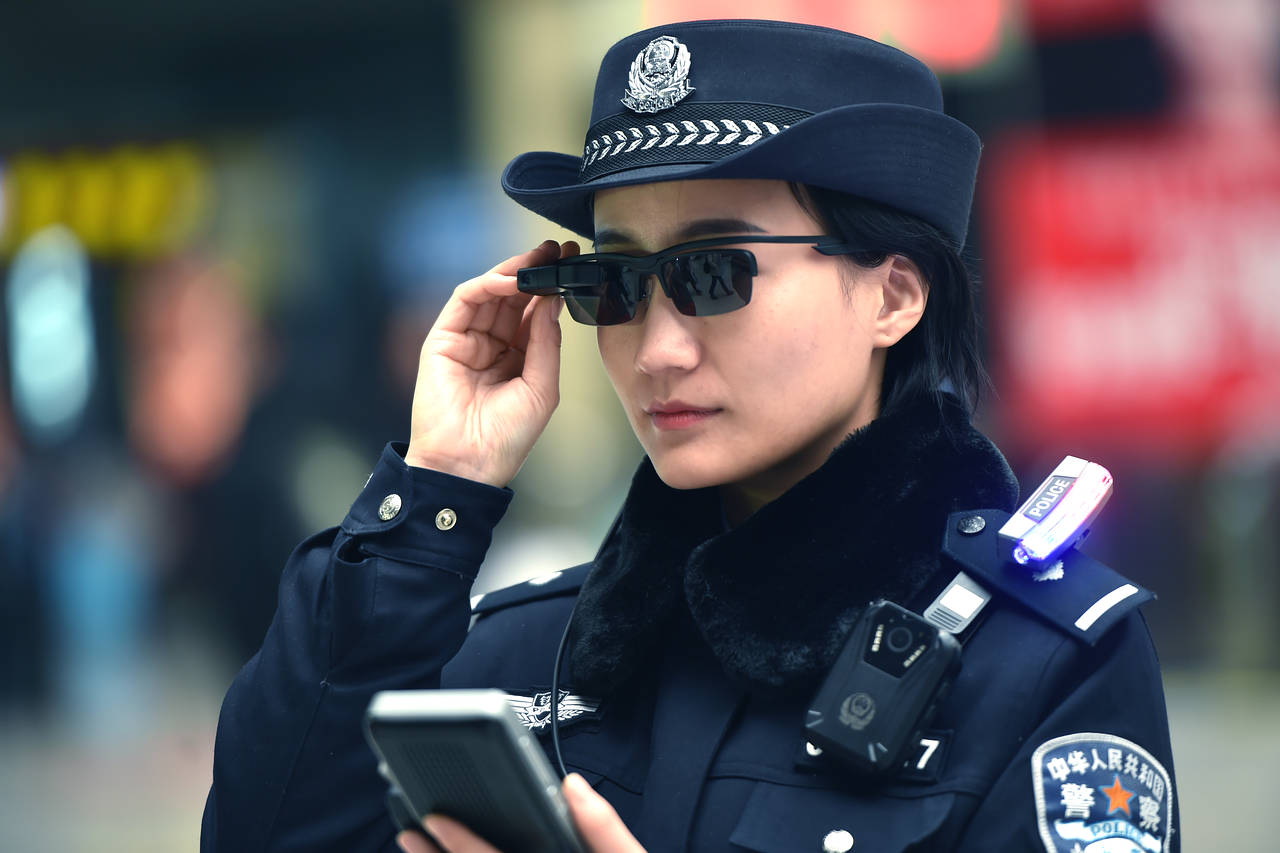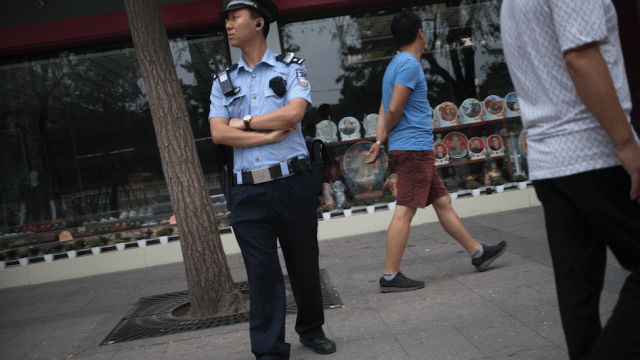Chinese police have begun using glasses equipped with facial recognition-enabled cameras to spot fugitives travelling through train stations. Though Chinese police have said the glasses will spot people using fake IDs or travelling to avoid a warrant, many are concerned about China using the tech to target political advocates and minorities. China has been accused of using face recognition tech to “fence in” the Muslim Uighur minority in northwestern Xinjiang.
Photo: AP
The glasses essentially automate the process of asking for an ID. When the wearer looks at someone, the attached camera apparently takes precise measurements of the person’s face. That measurement is then compared to a database of individuals, each with their own recorded measurements. The tech is reportedly able to determine a match within seconds. For riders, the police want to make sure the person on the train isn’t travelling with someone else’s ID or hopping a train to avoid police.

Image: China News via Wall Street Journal
In the West, advocates are generally opposed to police putting people into databases that don’t differentiate between suspects and citizens, though China’s dragnet approach has drawn headlines for years. China mandates collecting biometric data on citizens, and face recognition has become commonplace in cameras around the country.
These tools are chilling individually, but face recognition represents an event horizon in police surveillance. In the case of the new glasses, police are seeking to check every person against a database of riders, thus simply being looked at is both a search and an identification process. Advocates voiced similar concerns last year when Axon, formerly Taser, began to explore body cameras equipped with face recognition.
As counter-surveillance expert Adam Harvey told Gizmodo last year, wearables can majorly augment the processing powers of officers. It might take an officer hours to check, say, 200 people’s IDs, but this tech theoretically could do it in minutes, if it actually works as described. This rapid upscale in officers’ abilities to identify, surveil and process people would bring with it new concerns about police ability.
Conspicuously missing from both the original news coverage and the WSJ write-up are screens of what the officer sees. It’s possible the headset, which seems to look a lot like Google Glass, is capable of providing information about a match between a presented ID and a rider’s face, but details are scarce. The glasses were reportedly developed by LLVision Technology in Beijing.
The ACLU has voiced concerns that wearable tech could be connected to all sorts of personal information on the matched person, their previous arrests, their address, employment status, and so on. In the US, where citizens are assigned a “threat score” based on their likelihood of offending, the ACLU has expressed concerns that this information could pop up onscreen as well. As police collect more and more data on citizens, how long will it be until it’s all networked, indexed, and pops up every time an officer sees your face?
While consumer smart glasses such as Google Glass have failed to catch on, officer wearables are essentially an inevitability. From Alexa in police cars to all-seeing body cameras, officers will soon hold immense technological powers on their person. If officers are able to upscale their investigative powers this way, it’s more crucial than ever that we similarly upscale privacy protections or risk having them outmatched.
